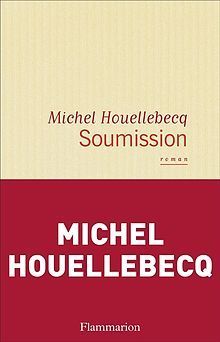Houellebecq on form

By ADRIAN TAHOURDIN
Michel Houellebecq’s most recent novel, Soumission, is really very good. As is well known, it was published on the day of the Charlie Hebdo attacks, in which the novelist lost one of his friends, the sixty-eight-year-old economist Bernard Maris. It’s inevitable that the publication of a mere novel should have been completely overshadowed by such events, and noteworthy that France’s leading left-leaning paper Le Monde gave the book a distinctly lukewarm review. The paper has given Houellebecq acres of coverage over the course of his career, so this was a significant thumbs-down.
But, for what it’s worth, I think Soumission is far superior to his last novel La Carte et le territoire (2010; The Map and the Territory), which walked away with France’s most prestigious literary prize, the Goncourt. As French editor of the TLS I feel mildly embarrassed that it’s taken me until now to read Soumission; but then I was rather put off by the last effort. (There was also the small diversion of the film that came out last year, The Kidnapping of Michel Houellebecq, which seemed to me a complete indulgence of the author.) Russell Williams reviewed Soumission for the TLS in March; he had some well-argued reservations which I don't entirely share.
It seems to me that where Houellebecq excels in his most recent novel is in presenting quite complicated ideas in a lucid and highly readable style. The writing is as sharp as it has ever been, and will present quite a challenge to his English translator. The conceit of having, as a central character, an expert on the work of the quirky symbolist novelist J.-K. Huysmans is a brilliant one; and Houellebecq is always illuminating on Huysmans: he knows his work well.
Meanwhile this insight, late in the novel, was worth the admission price alone, as they say: “. . . these hideous [faculty] buildings had been constructed during the worst period of modernism, but nostalgia has nothing to do with aesthetic sentiments, it’s not even linked to a happy memory, one is nostalgic for a place simply because one has lived there, regardless of whether it was good or bad, . . .” How true.
Peter Stothard's Blog
- Peter Stothard's profile
- 30 followers



